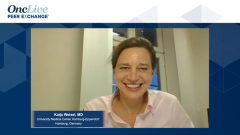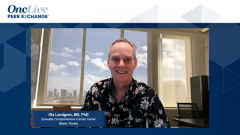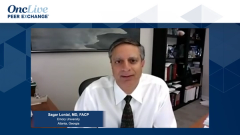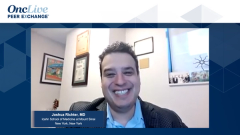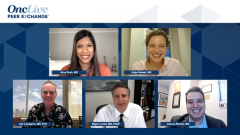
Treatment Options for Patients Progressing on Belantamab Mafodotin in MM
Katja Weisel, MD, reviews potential mechanisms of resistance to belantamab mafodotin in patients with multiple myeloma, and Sagar Lonial, MD, FACP, discusses potential treatment options for patients who progress on belantamab mafodotin.
Nina Shah, MD: Katja, Josh touched on this a little. Do we know the potential mechanisms of resistance to belantamab mafodotin [Blenrep]? If someone progresses on belantamab, would you then treat them with another BCMA [B cell maturation antigen] agent?
Katja Weisel, MD: We’re not as clear as we’d like regarding resistance and the difference of resistance mechanisms, especially as we see that some patients who are very resistant and refractory to other key myeloma drugs respond extremely well to belantamab mafodotin and the other way around. There’s a lot of work to do before we have a key statement. But what we know is that there’s no general BCMA loss. This gives us confidence to reintroduce any BCMA agent in patients after belantamab mafodotin exposure. It was a great effort to include those patients in separate cohorts in the ongoing CAR [chimeric antigen receptor] T trials to preemptively and prospectively address this key question, which will be extremely relevant in the near future in my opinion.
But what we also see from the past days looking at the data on bispecific antibodies targeting different targets than BCMA—the talquetamab or the cevostamab—is that patients who were treated with belantamab before entering those trials had comparable outcome to what we can state now, although the numbers were very limited, meaning that there’s no hint for a broad refractoriness evolving out of the exposure with belantamab mafodotin.
Nina Shah, MD: Sagar, on that tail, Katja mentioned that there are other BCMA-targeting agents that are being developed, including CAR Ts and bispecifics. How do you think the safety and efficacy of belantamab compares with other BCMA-targeting agents, particularly in these categories?
Sagar Lonial, MD, FACP: When you think about CAR T cells, it’s not just safety. The efficacy is quite good with a high response rate, long PFS [progression-free survival], and high CR [complete response] and MRD [minimal residual disease]-negative rates, but it requires a patient who can wait 6 weeks for the product to be made. They are in the hospital for a couple of weeks, and there are patients who don’t want to do that regardless of age. You worry about the ability of older, frailer patients to tolerate grade 3 or grade 2 CRS [cytokine release syndrome] or spend some time in the hospital.
For the bispecifics, only the first few doses require some level of hospitalization, so it’s a little more off the shelf and ready to go. But there are many patients, especially now in the COVID-19 era, who don’t want to go to the hospital. It’s about finding the optimal approach and the optimal safety profile. Both CAR T and bispecifics have a pretty significant infection signal through the profound suppression of BCMA for a long period. You don’t see that as much with the antibody-drug conjugate. There are a number of pros and cons for each of these categories. It’s not a simple slam dunk on what the right option is for any given patient.
Nina Shah, MD: Yes. As I always say, there’s enough myeloma to go around, and not every treatment is right for every patient. This has been a great discussion about antibody-drug conjugate therapy, and I know there’s more to come in the next year.
Transcript Edited for Clarity


